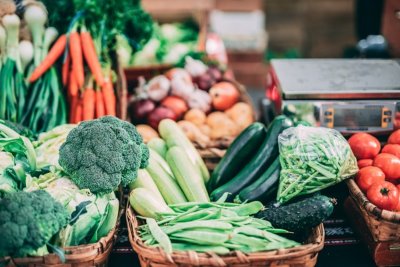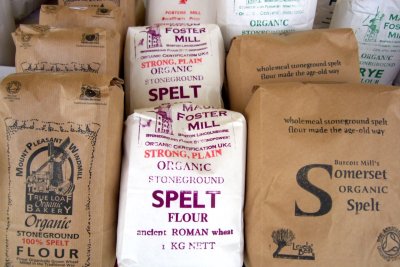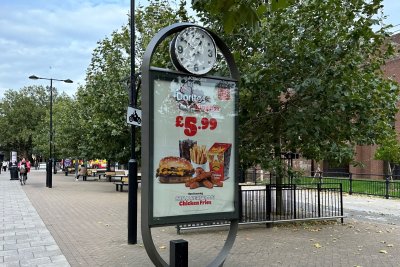Sustain Brexit Forum news update
February’s parliamentary recess has been cancelled, so this week House business carries on, but the three Bills we are following in detail (agriculture, fisheries and trade) are stalled, the government presumably fearful that unhelpful amendments could be undermine easy passage. Work continues off camera in committee rooms, with Parliament passing statutory instruments at a tremendous rate and Gove delaying key food and farming policies, after industry pressure. Concern mounts for the quality and detail of key legislation.
The one thing uniting Parliament is that no deal is an undesirable outcome for Brexit. We agree and have been looking in detail at the impact of no deal Brexit on food for people most in need – children, hospital patients, charities and low-income households. We want government to ring-fence funds and target supplies to guarantee that vulnerable people don’t go hungry.
But in any case, improving our food system need not wait for Brexit; last week our Food Research Collaboration colleagues released a report busting the myth that the EU was to blame for the decline in UK fishing and pointing out that the UK could give more fish quotas to small-scale fishers who are arguably more sustainable. You can listen to Sustain’s Ruth Westcott being interviewed by BBC You and Yours on the topic here. And we’ve produced a Fish mythbuster for those who’d like to know more about fish and Brexit. Let us know what you think – are there any fish myths we’ve missed? (orla@sustainweb.org)
Kath Dalmeny
Chief Executive, Sustain: the alliance for better food and farming
www.sustainweb.org
Sustainable Farming (Agriculture Bill)
The Bill Report stage debate and third reading of the Agriculture Bill is still not scheduled but more amendments are still being tabled so competition will be strong for support in the short debate and votes when they do happen. There are suggestions progress on the Bill may be further delayed until the next Parliamentary session. This means an unhelpful loss of momentum and meanwhile many secondary pieces of legislation are being rapidly passed through, which is concerning. We continue to lobby MPs and Peers in the Lords on crucial Bill amendments on trade, health, fair dealing, agroecology, budgets and workers. They need to hear continued public interest and that MPs should put their names to these amendments.
The media picked up our concerns about comments from farming minister George Eustice and other ministers about dropping all import tariffs to avoid price inflation after a no deal (and even a bad deal) and hoping currency fluctuations will compensate farmers. The impact on farmers could be huge; we could see closure of farms, with environmental and rural implications and imports of food produced to lower standards. (Vicki Hird)
Farm animal welfare should be on food labels
Sustain member the RSPCA says that it should be mandatory for meat labels to include information on the welfare of farm animals.
Sustainable Fish (Fisheries Bill)
There is still no date for the next stage of the Fisheries Bill, but pressure continues to mount on Government, as MPs from across parties, the House of Lords and NGOs all call for the Bill to be amended to take into account sustainability, fair allocation of quota and better data collection. (Ruth Westcott)
Lords committee finds 'little evidence' of fish discard ban being followed
Parliament's EU Energy and Environment Sub-Committee recommends fishing quota reallocation, CCTV on vessels and investment in more selective gear.
Food Research Collaboration report identifies the real causes of the decline of UK fishing - and it isn't the EU
The new report says that reductions in UK fishing were 'necessary remedial action' following overfishing, as well as failures of UK policy, and calls for new post-Brexit policy to be fair and food-focused. Sustain’s Ruth Westcott was interviewed by BBC’s You and Yours – you can listen here (at 15mins) and you can hear the Food Research Collaboration’s Lindy Sharpe briefing Farming Today about the same report (at 10 mins).
Everything you wanted to know about fish, but were too scared to ask.
Colleagues have told us they love sustainable fish, but don’t always understand the language and politics about the industry. If that sounds familiar, then click here. We’ll get you up to speed in no time.
International Trade and Food Standards (Trade Bill)
This week the House of Commons will debate proposed trade deals with the US, Australia, New Zealand and joining the Comprehensive and Progressive Agreement for Trans-Pacific Partnership. Trade campaigners are calling this the ‘mandate’ debate, which will set the framework for what Parliament will accept in these deals. Parliament is expected to be quiet as MPs keep to their recess holiday plans, but we’ll be monitoring events.
Ministers are reportedly poised to set no deal tariffs this week, with trade secretary Liam Fox lobbying for zero tariffs and others seeking tariff protection for domestic industries. Elsewhere, the financial press are reporting that a joint letter Japan from Liam Fox and Jeremy Hunt has offended their Japanese counterparts who considered cancelling trade talks. (Orla Delargy)
No deal Brexit will be as disruptive as a disease outbreak, says NFU President
The President of the National Farmers Union, Minette Batters, has told the Guardian that a no deal Brexit would be as disruptive to farming as an outbreak of disease. She says companies are being forced by an 'inept parliament' to spend millions preparing.
UK’s food companies told to relabel products in event of Brexit No Deal
The UK Government has advised UK food companies that in the event of a No Deal they will have to change the labels on their products.
No deal Brexit: Farming Minister claims government will suspend food tariffs, despite farming concerns
Farming minister George Eustice has said the Government will suspend tariffs to stabilise food prices in the event of a No Deal Brexit, despite concerns about the possible impact on the farming industry. In an interview to BBC Radio 4’s World at One programme on Friday 1 February he claimed there would be opportunities for British beef, pork and dairy farmers to produce foods currently imported from Europe. However, he also pointed out that there would be short term ‘turbulence’ for farming due to new export health certificates, customs checks and tariffs that would be introduced in the event of a No Deal ‘hard’ Brexit.
How ready is the UK Gov for a No Deal Brexit?
The Institute for Government has issued a report into government preparedness for a No Deal Brexit. In their view, the Government will ‘face major challenges in passing the required legislation’ on agriculture, fisheries and trade, and will also be unable to mitigate fully the major negative impacts on these areas of a No Deal Brexit.
Join the fight against corporate courts
Health warnings on cigarette packets, raising the minimum wage, protecting the environment from mining. These are just some of the laws big business has challenged under a secretive shadow legal system called ISDS – investor-state dispute settlement.
These corporate courts are written into thousands of trade and investment deals around the world and they allow foreign companies to sue for millions over laws that harm their profits. Even the threat of a case can pressure countries into backing down. We have a chance to stop this in post Brexit trade deals. Sustain members the Trade Justice Movement are co-ordinating a campaign and you can sign up at the link above.
A hard Brexit deal could have a serious impact on our environmental standards
Sam Lowe from the Centre for European Reform has written a paper for the RSPB outlining the impact of a hard Brexit (in which the UK extricates itself entirely from EU regulatory rules) on the environment. You can read in full here
Sustain members Trade Justice Now have produced a report into trade and health.
As the UK seeks to develop its own trade policy for the first time in a generation, it is important that realising the right to health is a central consideration and that the appropriate steps are taken to ensure that trade protects, rather than undermines, our health and the health of people around the world with whom we trade. You can read the full report here
House of Commons research on EU trade deals
The House of Commons Library has released research on the 70 trade agreements the EU has, which will no longer apply to the UK at the end of the transition period, or in the event of a no deal Brexit.
Brexit and Food Resilience
Over recent months, Sustain has participated in meetings and conversations with people directly involved in large-scale food supply; public sector institutions; food trade associations; providers of food to charities and emergency food aid; and local authority groups discussing what they can do to mitigate the impact on food supply of a 'no deal' Brexit. Such conversations have led us to conclude that vulnerable groups have little protection from the effects of a no deal Brexit – see our new briefing below. (Kath Dalmeny)
We must not let Brexit cause a food crisis for people most in need
Food for children, hospital patients, charities and low-income households is seriously at risk from no deal Brexit. Government must take action to secure food resilience for the people who need it most, argues Kath Dalmeny, chief executive of Sustain.
Scottish Government gives FareShare £500,000
Sustain member FareShare receives extra funding from the Scottish government to mitigate against the potential consequences of Brexit on food supply for people in need.
Environmental Policy
Gove bows to industry pressure to delay food and farming policies due to Brexit
Michael Gove has bowed to industry pressure to delay UK policy-making on chemicals, pesticides, plastics, clean air and waste, after over 30 trade associations said no deal Brexit preparations are already too time-consuming and expensive. The fate of government’s promised action on child obesity remains undecided.
Jobs at Sustain HQ
Itching to help out with making our food campaigning a success? Are you a dab hand at fundraising? Or do you have excellent design skills and a good understanding of coding, especially for the web? There are two great jobs going at our friendly, creative and dynamic Sustain HQ – check out the details here.
Brexit: We stand at a cross-roads. When the UK leaves the European Union, will our leaders uphold good standards for our food, farming, fishing and trade deals? And will they agree a sensible deal with the EU? We need to make sure that they do!



